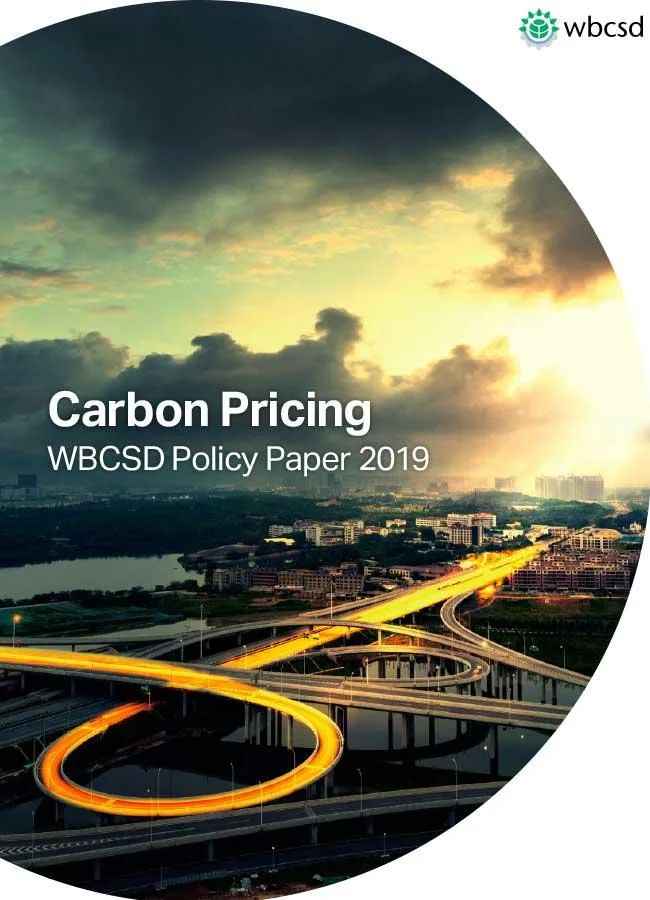
Published
22 September, 2019Type
PublicationThe Intergovernmental Panel on Climate Change (IPCC) Special Report on Global Warming of 1.5°C sent a resounding message that the impacts of allowing 2°C global warming are far greater and more catastrophic than 1.5°C. The report states that, while achieving a 1.5°C world is still possible, it will require radical and urgent transformation of all systems at an unprecedented scale.
The World Business Council for Sustainable Development (WBCSD) and its member companies believe that carbon pricing mechanisms are critical to support the urgent efforts required to drive the transition towards a low carbon future and achieving the 1.5oC goal.
With countries looking to ramp up ambition in their respective NDCs for submission in 2020, several analyses and scenarios show that carbon pricing needs to be a key part of all NDCs and long-term strategies in the coming years if we are to stand a chance of reaching the Paris goal.
We see the development of a robust global carbon market (comprised of links between emission trading systems and transfer of carbon units) underpinned by environmental integrity and aligned with the achievement of SDGs, as a huge opportunity to accelerate climate action at the global level. This echoes the view of the UN Secretary-General (and others) when they call for a tax on carbon, not people.
With Article 6 remaining the missing piece of the Paris Rulebook, 2019 will be a critical year for the advancement of the discussions surrounding cooperative mechanisms, and will become the focus for successful negotiations at COP25 in Santiago, Chile. This might be the last chance to put in place cooperative mechanisms that deliver meaningful emission reductions whilst considering issues relating to environmental, economic and social impacts.
Investments in the energy systems transformation, guided by a carbon price can help efforts to reach net-zero emission globally over the course of the century and support the near-term acceleration needed whilst supporting societies’ development.
